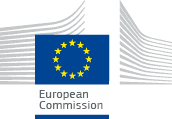The Ecodesign Directive
Sustainable industrial policy aims in particular at developing a policy to foster environmental and energy efficient products in the internal market. The Ecodesign Directive 2009/125/EC is the cornerstone of this approach. It establishes a framework for the setting of ecodesign requirements for energy-related products with the aim of ensuring the free movement of those products within the internal market. Directive 2009/125/EC repealed the original Directive 2005/32/EC for the setting of ecodesign requirements for energy-using products. It prevents disparate national legislations on the environmental performance of these products from becoming obstacles to the intra-EU trade and contributes to sustainable development by increasing energy efficiency and the level of protection of the environment, taking into account the whole life cycle cost.
The Ecodesign directive itself does not set binding requirements on products: it provides a framework (rules and criteria) for setting such requirements through implementing measures. It is also possible to introduce information requirements for components and sub-assemblies. The Commission prepares implementing measures only for products which have significant sales and trade in the EU, a significant environmental impact and potential for improvement. Product groups are identified following the procedure described in Article 16.
The Preparatory Review Study
Household refrigeration appliances are subject to Ecodesign measures under Commission Regulation (EC) No. 643/2009 1 and Energy Labelling measures under Commission Delegated Regulation (EU) No. 1060/2010 2. Following Article 7, both regulations were up for revision in 2014. To this end, they were included in an Omnibus Review study that the European Commission initiated in 2013 and concluded in April 2014.
In its Working Document of 4 April 2014 1, discussed and welcomed at the Ecodesign Consultation Forum of 5 May 2014, the European Commission reports on the outcome of the Omnibus Review study and the way forward.
Household refrigeration appliances were identified as a “high or medium” priority product group, requiring further (extensive/comprehensive) revision study, because their energy saving potential is significant (at least 5 TWh/year in 2030) and an assessment of correction factors, number of product categories and the effect of a revised international standard is required.
In addition, there is a possibility for resource efficiency requirements. The revision should also include an assessment of possible ecodesign requirements for wine storage appliances.
The preparatory review study will provide the necessary information to prepare for the next phases in the policy process (carried out by the Commission) and in particular the impact assessment, the consultation forum, and the possible draft implementing measures. The approach used throughout this study is the Methodology for Ecodesign of Energy-related products (MEErP), which is further explained in the section Methodology. 6
The Energy labelling Directive
The abovementioned study may also be used as supporting analysis for the preparation of energy labels in accordance with Directive 2010/30/EC8, recital (7) and Article 10(3).
For more information on the Ecodesign Directive 2009/125/EC and Energy labelling Directive 2010/30/EC and related activities, please visit the Links page.
______________________________
1 Commission Regulation (EC) No 643/2009 of 22 July 2009 implementing Directive 2005/32/EC of the European Parliament and of the Council with regard to ecodesign requirements for household refrigerating appliances, OJ L 191, 23.7.2009, p. 53–68
2 Commission Delegated Regulation (EU) No 1060/2010 of 28 September 2010 supplementing Directive 2010/30/EU of the European Parliament and of the Council with regard to energy labelling of household refrigerating appliances, OJ L 314, 30.11.2010, p. 17–46
3 VHK/VITO/Viegan Maagøe/Wuppertal Institute, Omnibus Review Study on cold appliances, washing machines, dishwashers, washer-driers, lighting, set-top boxes and pumps, prepared under contract for the European Commission, April 2014.
4 European Commission, Working Document Omnibus Review Process of existing measures, Brussels, 4 April 2014.
5 Methodology for the ecodesign of energy-related products (MEErP) http://ec.europa.eu/enterprise/policies/sustainable-business/ecodesign/methodology/index_en.htm
6 DIRECTIVE 2010/30/EU OF THE EUROPEAN PARLIAMENT AND OF THE COUNCIL of 19 May 2010 on the indication by labelling and standard product information of the consumption of energy and other resources by energy-related products (recast).
